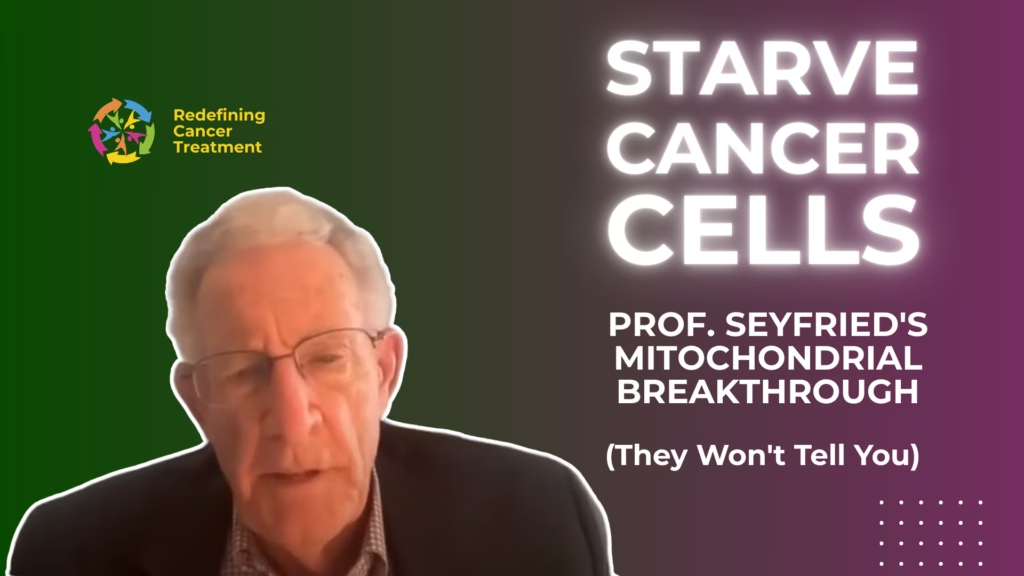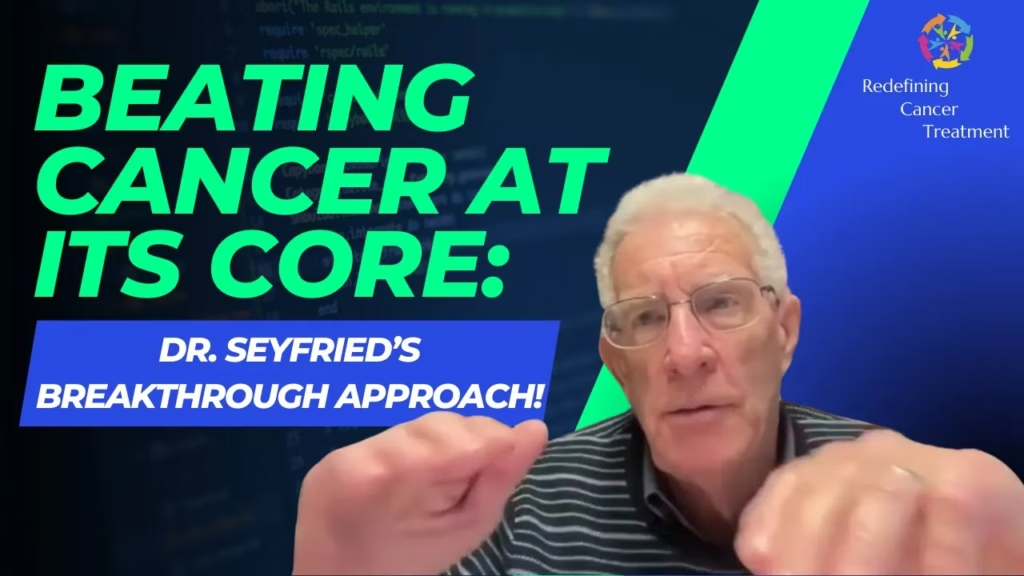
Thomas Seyfried Warns Against Unauthorised Use of His Work in Cancer-Keto Promotions
Dr. Thomas Seyfried Issues Warning: “Stick to My Published Work”⚠️ The cancer researcher clarifies he has no ties to “keto for cancer”
Metabolic Therapy Basics: Focuses on targeting glucose and glutamine dependency in cancer cells.
Challenges: Lack of clinical trials, funding issues, and scepticism from major cancer centres.
Cancer Cell Metabolism: Unique dependency on glucose and glutamine, with inefficient oxygen use.
Education and Awareness: Needed for both patients and physicians to understand metabolic therapy’s potential.
Future Directions: Clinical trials and integration into mainstream cancer treatment options.
Metabolic therapy is based on the idea that cancer cells rely heavily on glucose and glutamine for energy, a concept rooted in the work of Otto Warburg. This approach suggests that by targeting these metabolic pathways, cancer cells can be selectively starved, potentially offering a more effective and less toxic treatment option compared to traditional chemotherapy and radiation.
Despite the promising theoretical foundation, metabolic therapy faces significant barriers in mainstream medical practice. Major cancer centres like Dana Farber and MD Anderson focus primarily on genetic mutations and immunotherapy, often dismissing metabolic approaches due to a lack of clinical trials. However, conducting such trials is hindered by funding issues and the requirement to first apply standard treatments, which can be detrimental to patients.
Professor Seyfried highlights that cancer cells are uniquely dependent on glucose and glutamine for survival. His research demonstrates that removing these nutrients leads to the death of cancer cells, while normal cells can adapt to alternative energy sources. This dependency is crucial for understanding why metabolic therapy could be effective.
Some researchers argue that cancer cells use oxygen similarly to normal cells, suggesting they are not solely dependent on fermentation as Warburg proposed. However, Seyfried clarifies that while cancer cells consume oxygen, they do not use it efficiently for energy production, relying instead on fermentation. This distinction is critical for understanding the metabolic vulnerabilities of cancer cells.
A significant challenge in adopting metabolic therapy is the lack of education among both patients and physicians. Many medical professionals receive little training on the role of diet and lifestyle in managing chronic diseases like cancer. Patients often face scepticism when inquiring about metabolic therapy, leading to frustration and a sense of hopelessness.
While metabolic therapy is not a cure-all, it can improve quality of life and overall survival for some patients. Seyfried emphasizes the need for clinical trials to validate these benefits formally. He also suggests that major cancer centres should explore metabolic approaches more seriously, given the limitations of current treatments.
Professor Seyfried’s insights underscore the potential of metabolic therapy as a complementary or alternative approach to cancer treatment. However, overcoming the inertia in the medical community and securing support for clinical trials remains a significant hurdle.
As research continues to uncover the metabolic vulnerabilities of cancer cells, there is hope that metabolic therapy may one day become a more integrated part of cancer care.

Dr. Thomas Seyfried Issues Warning: “Stick to My Published Work”⚠️ The cancer researcher clarifies he has no ties to “keto for cancer”

Professor Thomas Seyfried’s groundbreaking metabolic therapy framework reveals how targeting cancer’s energy vulnerabilities—through ketogenic diets and repurposed drugs like Fenbendazole—offers

In this paradigm-shifting analysis of cancer biology, Professor Thomas Seyfried (Boston College) talks about starving cancer cells and dismantles the

The video explores how metabolic therapy can revolutionise cancer treatment by targeting cancer cells’ reliance on glucose and glutamine for energy. It